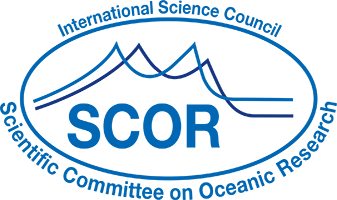News
+ more newsPro-Oceanus Systems - CO2-Pro™ ATM
Monday, 18 March 2019
| Manufacturer: | Pro-Oceanus Systems |
| Instrument/sensor: | CO2-Pro™ ATM (atmosphere pCO2 sensor) |
| Measurement type: | underway |
| Variable(s): | pCO2 |
| Brief description: | |
| More info: | https://pro-oceanus.com/products/pro-series/co2-pro-atm |
| Contact: | Mark Barry (This email address is being protected from spambots. You need JavaScript enabled to view it.) |
| References: |
Pro-Oceanus Systems - Mini CO2
Monday, 18 March 2019
| Manufacturer: | Pro-Oceanus Systems |
| Instrument/sensor: | Mini CO2 Submersible pCO2 Sensor |
| Measurement type: | submersible |
| Variable(s): | pCO2 |
| Brief description: | |
| More info: | https://pro-oceanus.com/products/mini-series/mini-co2 |
| Contact: | Mark Barry (This email address is being protected from spambots. You need JavaScript enabled to view it.) |
| References: |
NKE Instrumentation - pCO² sensor
Monday, 18 March 2019
| Manufacturer: | NKE Instrumentation |
| Instrument/sensor: | pCO² sensor |
| Measurement type: | submersible |
| Variable(s): | pCO2 |
| Brief description: | The pCO2 sensor provides very precise autonomous measurements based on a spectrophotometry approach regarding the pCO2 concentration. The sensor can be integrated on CARIOCA and PIRATA buoys with the aim to measure CO2 partial at the sea surface of ocean and also determine the AIR-SEA CO2 fluxes in open ocean. |
| More info: | https://nke-instrumentation.com/produit/pco%c2%b2/ |
| Contact: | This email address is being protected from spambots. You need JavaScript enabled to view it. |
| References: |
Sensors & System Solutions, LLC. - Seaology MapCO2
Monday, 18 March 2019
| Manufacturer: | Sensors & System Solutions, LLC. |
| Instrument/sensor: | Seaology Marine Autonomous pCO2 Monitoring System |
| Measurement type: | underway |
| Variable(s): | pCO2 |
| Brief description: | |
| More info: | http://sensorssystemssolutions.com/products |
| Contact: | http://sensorssystemssolutions.com/contact |
| References: | Sutton, A. J., Sabine, C. L., Maenner-Jones, S., Lawrence-Slavas, N., Meinig, C., Feely, R. A., Mathis, J. T., Musielewicz, S., Bott, R., McLain, P. D., Fought, H. J., and Kozyr, A.: A high-frequency atmospheric and seawater pCO2 data set from 14 open-ocean sites using a moored autonomous system, Earth Syst. Sci. Data, 6, 353-366, https://doi.org/10.5194/essd-6-353-2014, 2014. |
Sensors & System Solutions, LLC. - underway CO2
Monday, 18 March 2019
| Manufacturer: | Sensors & System Solutions, LLC. |
| Instrument/sensor: | underway CO2 |
| Measurement type: | underway |
| Variable(s): | pCO2 |
| Brief description: | for surface gliders, bouys |
| More info: | |
| Contact: | |
| References: |
Sunburst Sensors - SAMI-CO2
Monday, 18 March 2019
| Manufacturer: | Sunburst Sensors |
| Instrument/sensor: | SAMI-CO2 Ocean CO2 Sensor |
| Measurement type: | submersible |
| Variable(s): | pCO2 |
| Brief description: | |
| More info: | |
| Contact: | |
| References: |
Sunburst Sensors - SuperCO2 System
Monday, 18 March 2019
| Manufacturer: | Sunburst Sensors |
| Instrument/sensor: | SuperCO2 System |
| Measurement type: | underway |
| Variable(s): | pCO2 |
| Brief description: | |
| More info: | http://www.sunburstsensors.com/products/oceanographic-carbon-dioxide-sensor-benchtop-li-cor.html |
| Contact: | |
| References: |
Sunburst Sensors - AFT-CO2
Monday, 18 March 2019
| Manufacturer: | Sunburst Sensors |
| Instrument/sensor: | Autonomous Flow Through Instrument CO2 (AFT-CO2) |
| Measurement type: | underway |
| Variable(s): | pCO2 |
| Brief description: | |
| More info: | http://www.sunburstsensors.com/products/oceanographic-carbon-dioxide-sensor-benchtop.html |
| Contact: | |
| References: |
SubCtech - OceanPack™ RACK
Monday, 18 March 2019
| Manufacturer: | SubCtech |
| Instrument/sensor: | OceanPack™ RACK |
| Measurement type: | underway |
| Variable(s): | pCO2 |
| Brief description: | Classic “Underway” or “FerryBox” autonomous measuring system. |
| More info: | https://subctech.com/ocean-monitoring/systems/surface/oceanpack-rack/ |
| Contact: | Stefan Marx (This email address is being protected from spambots. You need JavaScript enabled to view it.) |
| References: |
SubCtech - OceanPack™ CUBE
Monday, 18 March 2019
| Manufacturer: | SubCtech |
| Instrument/sensor: | OceanPack™ CUBE |
| Measurement type: | underway |
| Variable(s): | pCO2 |
| Brief description: | A compact version of RACK |
| More info: | https://subctech.com/ocean-monitoring/systems/surface/oceanpack-cube/ |
| Contact: | Stefan Marx (This email address is being protected from spambots. You need JavaScript enabled to view it.) |
| References: |
The IOCCP promotes the development of a global network of ocean carbon observations for research through technical coordination and communication services, international agreements on standards and methods, and advocacy and links to the global observing systems. The IOCCP is co-sponsored by the Scientific Committee on Oceanic Research and the Intergovernmental Oceanographic Commission of UNESCO. Read more…
Calendar
|
|
IOCCP meetings, IOCCP-related meetings as well as events related to a wider scope in marine biogeochemistry. |





 Please wait...
Please wait...